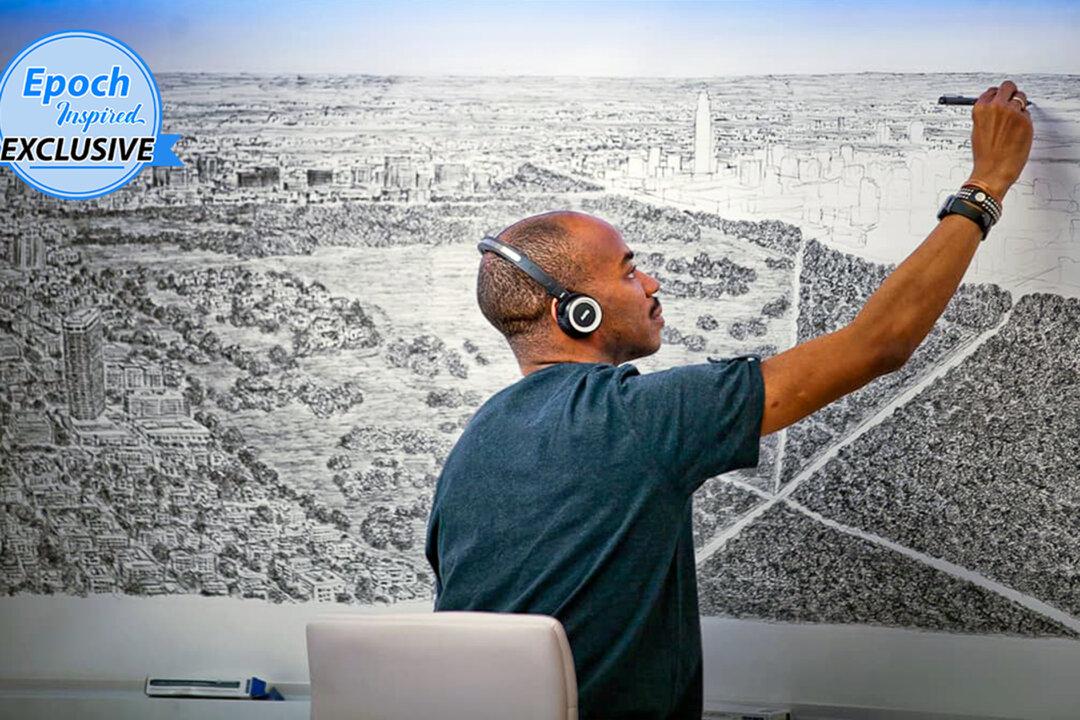Diagnosed with autism at 3 years of age, this British artist found his voice through drawing. Today, he draws epic, near-accurate cityscapes from memory after just one viewing, and has received the award of an honorary MBE, becoming a Member of the Order of the British Empire, for his unique contribution to the art world.
Stephen Wiltshire, 47, was born and educated in London, England. Describing himself as an “artistic savant,” he didn’t speak until the age of 5—his first word was “paper”—but found his expression elsewhere.





